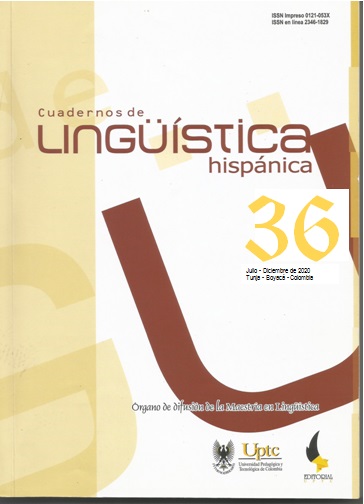The Teacher as Guide and Warrior: Metaphors about the Teaching Profession

Abstract
In the context of various reforms to the Chilean educational system and the demonstrations that it has provoked, the objective of this investigation is to analyse the metaphorical concepts about the figure of the teacher. In the study we used a qualitative approach and a phenomenological design. 168 Chilean English Teaching students who were in the final years of their undergraduate degree answered an eliciting metaphor questionnaire. The analysis of the metaphorical expressions obtained from the questionnaire was carried out through semantic content analysis. From this analysis, three major categories were defined: metaphors focused on the teacher, metaphors focused on the students and metaphors focused on the teacher’s social recognition. The results show that, even though the subjects are aware of the difficulties of their practice, they have a positive impression of the teaching practice. In parallel, the prevailing idea was that of the teacher as a medium for the learning of his or her students.
Keywords
qualitative research, pre-service teachers, discourse analysis, metaphors
Author Biography
Paola Alarcón Hernández
Doctora en Lingüística. Profesora Asociada, Departamento de Español, Facultad de Humanidades y Arte, Universidad de Concepción, Chile.
Víctor Vásquez Bustos
Profesor de español. Magíster en Lingüística Aplicada, Universidad de Concepción, Chile.
Claudio Díaz Larenas
Doctor en Educación. Profesor Titular, Departamento de Currículum e Instrucción, Facultad de Educación, Universidad de Concepción, Chile
Carolina Venegas Carrasco
Magíster en Investigación Social y Desarrollo. Profesora Asistente, Departamento de Salud Pública Facultad de Medicina, Universidad de Concepción, Chile.
References
Alarcón, P.; Díaz, C., Vergara, J., Vásquez, V. & Torres, C. (2018). Análisis de metáforas conceptuales sobre la imagen social del profesorado en estudiantes de pedagogía. Onomázein, 40, 1-27. https://doi.org/10.7764/onomazein.40.01
Alger, Ch. (2009). Secondary teachers' conceptual metaphors of teaching and learning: Changes over the career span. Teaching and Teacher Education, 25(5), 743-751. https://doi.org/10.1016/j.tate.2008.10.004
Ávalos, B., Cavada, P., Pardo, M. & Sotomayor, C. (2010). La profesión docente: temas y discusiones en la literatura internacional. Estudios Pedagógicos, 35(1), 235-263. https://doi.org/10.4067/S0718-07052010000100013
Ávalos, B. & Sotomayor, C. (2012). Cómo ven su identidad los docentes chilenos. Revista Perspectiva Educacional, 51(1), 57-84. https://doi.org/10.4151/07189729-Vol.51-Iss.1-Art.74
Ben-Peretz, M., Mendelson, N. & Kron, F. (2003). How teachers in different educational context view their roles. Teaching and Teacher Education, 19(2), 277-290. https://doi.org/10.1016/S0742-051X(02)00100-2
Biscarra, C., Giaconi, C. & Assaél, J. (2015). El docente en la legislación educacional chilena, Psicoperspectivas, 14(3), 80-92. Doi: 10.5027/PSICOPERSPECTIVAS-VOL14-ISSUE3-FULLTEXT-600 https://doi.org/10.5027/psicoperspectivas-Vol14-Issue3-fulltext-600
Black, A. L., & Halliwell, G. (2000). Accessing practical knowledge: How? Why? Teaching and Teacher Education, 16(1), 103-115. https://doi.org/10.1016/S0742-051X(99)00045-1
Cornejo, R., Albornoz, N. Castañeda, L., Palacios, D. Etcheberrigaray, G., Fernández, R. & Lagos, J. I. (2015). Las prescripciones del trabajo docente en el nuevo marco regulatorio de políticas educativas en Chile. Psicoperspectivas, 14(2), 72-83. https://doi.org/10.5027/psicoperspectivas-Vol14-Issue2-fulltext-580
Creswell, J. (2007). Qualitative Inquiry and Research Design. Choosing among Five Approaches. Londres: Sage.
Díaz, C., Alarcón, P., Tagle, T., Quintana, M. & Ramos, L. (2018). Las dimensiones cognitivas, afectivas y sociales del proceso de planificación de aula y su relación con los desempeños pedagógicos en estudiantes de práctica profesional y profesores nóveles de pedagogía en inglés. Proyecto Fondecyt n.º 1150889. Concepción, Chile: Universidad de Concepción.
Dincer, A., Yeşilyurt, S., Noels, K. A. & Vargas Lascano, D. I. (2019). Self-determination and classroom engagement of EFL Learners: A mixed-methods study of the self-system model of motivational development. Sage Open, 9(2). https://doi.org/10.1177/2158244019853913
Fardella, C. & Sisto, V. (2015). Nuevas regulaciones del trabajo docente en Chile. Discurso, subjetividad y resistencia. Psicologia & Soceidade, 27(1), 68-79. Recuperado de http://www.redalyc.org/pdf/3093/309338439008.pdfhttps://doi.org/10.1590/1807-03102015v27n1p068
Hernández, C., Fernández, C. & Baptista, P. (2006). Metodología de la investigación (4.a ed.). México D. F.: McGraw-Hill.
Kövecses, Z. (2002). Metaphor: A Practical Introduction. Oxford/Nueva York: Oxford University Press.
Ibarretxe-Antuñano, I. & Valenzuela, J. (2012). Lingüística cognitiva: origen, principios y tendencias. En I. Ibarretxe-Antuñano & J. Valenzuela (coord.) Lingüística cognitiva (pp. 12-38). Barcelona: Anthropos.
Lakoff, G. (1993). The contemporary theory of metaphor. En. A. Ortony (ed.), Metaphor and thought (pp. 202-251). Cambridge: Cambridge University Press. https://doi.org/10.1017/CBO9781139173865.013
Lakoff, G. & Johnson, M. (2012). Metáforas de la vida cotidiana (9.ª ed.). Madrid: Cátedra.
Low, G. (2015). A practical validation model for researching elicited metaphor. In W. Wan & G. Low (eds.), Elicited metaphor analysis in educational discourse (pp. 15-37). Amsterdam: John Benjamins. https://doi.org/10.1075/milcc.3.01low
Mackey, A. & Gass, S. (2005). Second language research. Methodology and design. Mahwah, NJ: Lawrence Erlbaum.
Mellado, L., Montaña de la, J., Luengo, M. & Bermejo, M. (2016). Evolución de los modelos docentes de futuros profesores de economía de secundaria, a través de la metáfora. Didáctica de las ciencias experimentales y sociales, 30, 23-44. https://doi.org/10.7203/dces.30.7230
Saban, A. (2004). Prospective classroom teachers' metaphorical images of selves and comparing them to those they have of their elementary and cooperating teachers. International Journal of Educational Development, 24(6), 617-635. https://doi.org/10.1016/j.ijedudev.2004.03.003
Saban, A. (2006). Functions of metaphor in teaching and teacher education: A review essay. Teaching Education, 17(4), 299-315. https://doi.org/10.1080/10476210601017386
Saban, A. (2010). Prospective teachers' metaphorical conceptualizations of learner, Teaching and Teacher Education, 26(2), 290-305. https://doi.org/10.1016/j.tate.2009.03.017
Saban, A., Kocbeker, B. N. & Saban, A. (2007). Prospective teachers' conceptions of teaching and learning revealed through metaphor analysis, Learning and Instruction, 17(2), 123-139. https://doi.org/10.1016/j.learninstruc.2007.01.003
Seung, E., Park, S. & Jung, J. (2015). Methodological approaches and strategies for elicited metaphor-based research. A critical review. In W. Wan & G. Low (eds.), Elicited metaphor analysis in educational discourse (pp. 39-64). Amsterdam: John Benjamins. https://doi.org/10.1075/milcc.3.02seu
Semino, E., Demjen, Z., Hardie, a., payne, s. & rayson, p. (2018). metaphor, cancer and the end of life: A corpus-based study. London: Routledge. https://doi.org/10.4324/9781315629834
Tenti, E. (2005). La condición docente. Análisis comparado de la Argentina, Brasil, Perú y Uruguay. Buenos Aires, Argentina: Siglo Veintiuno.
Thomas, L. & Beauchamp, C. (2011). Understanding new teachers' professional identities through metaphor. Teaching and Teacher Education, 27, 762-769. https://doi.org/10.1016/j.tate.2010.12.007
Wan, W. & Low, G. (2015). Introduction. In W. Wan & G. Low (Eds.). Elicited Metaphor Analysis in Educational Discourse (pp. 1-12). Amsterdam: John Benjamins. https://doi.org/10.1075/milcc.3.001int
Yob, I. M. (2003). Thinking constructively with metaphors. Studies in Philosophy and Education, 22, 127-138. https://doi.org/10.1023/A:1022289113443
